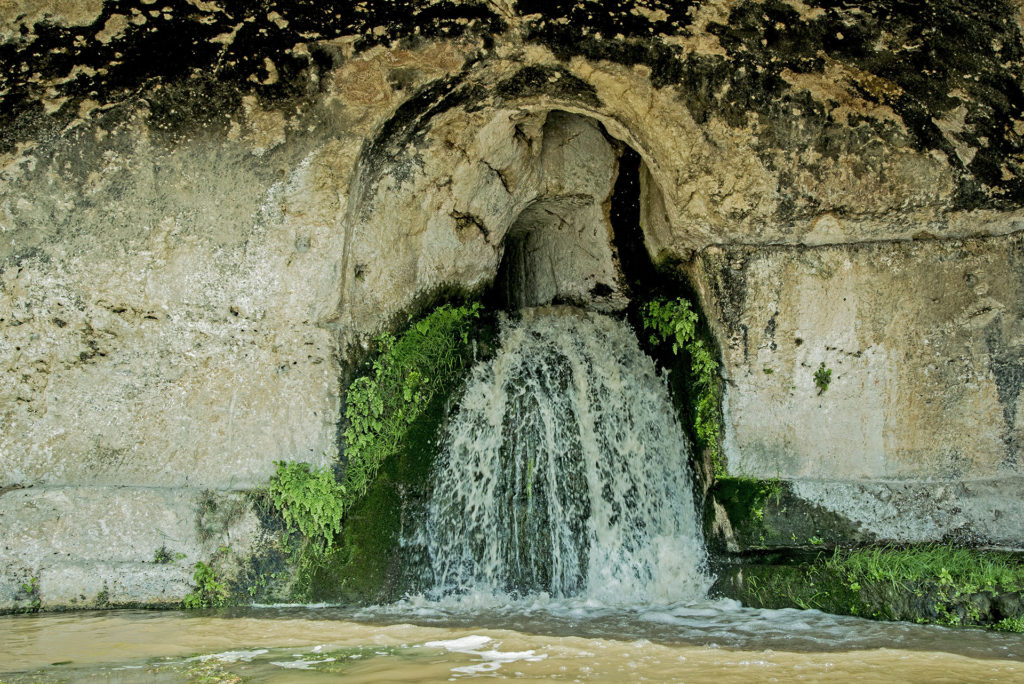Above the Greek theatre there is a terrace where in ancient times there was a sanctuary dedicated to the muses. In this place, called the museion, actors would gather before going on stage and performing at the theatre.
In the middle of a rock wall on this terrace, there is a cave with a vaulted ceiling.
Inside, a rectangular basin collects the water that flows from a small waterfall.

The fountain is linked to the Greek worship of nymphs, the deities of nature, hence the name of this place: il ninfeo (the nymphaeum). At the entrance to the ninfeo, there were statues dedicated to the muses. Three of these statues, dating from the 2nd century BC, are kept at the Paolo Orsi Archaeological Museum.
The water that reaches the interior of the cave came from two aqueducts built in Greek times: the Nymphaeum Aqueduct and the Galermi Aqueduct. To the east of the Grotta del Ninfeo there was a complex of water mills from the Spanish era.
They received water from the cave and poured it into the theatre after it was used to grind grain. Currently, only the “millers’ cottage” of this complex remains visible today: a tower connected to the historical period of the Mulini di Galerme, the Galerme Mills.